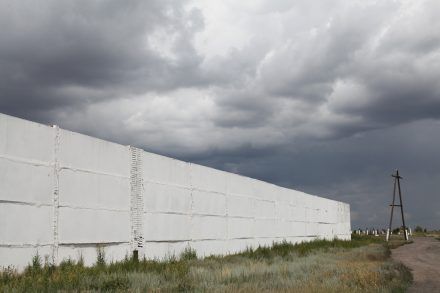Building a picture of women in prison
7th March 2014

This International Women’s Day (8 March), Penal Reform International is publishing a new report, Who are women prisoners? Survey results from Kazakhstan and Kyrgyzstan.
The report forms part of PRI’s multi-regional research project – inspired by the UN Bangkok Rules on Women Offenders and Prisoners – which looks at the background of women in prison.
This series of surveys provides rare data on the situation of women prisoners, and an equally rare opportunity to hear from women themselves about their needs. The research is intended to inform evidence-based policy on the provision of gender-specific responses to women offenders including appropriate support for women and girls in prison.
The United Nations has declared “Equality for women is progress for all” as the theme of 2014’s International Women’s Day to emphasise how gender equality, empowerment of women, women’s full enjoyment of human rights and the eradication of poverty are essential to economic and social development.
Like women in prison around the world, the women we surveyed in Kazakhstan and Kyrgyzstan (who make up six and five per cent of the prison population respectively) face poverty and discrimination before, during and after imprisonment.
A third of the 426 women who participated in the survey lost their job and housing as a result of imprisonment. A quarter of the women’s families had broken down. The majority were convicted of non-violent crimes, and of the 27 women in Kyrgyzstan who were convicted of murder or manslaughter of a male family member half had experienced frequent domestic abuse, ten had suffered sexual abuse and over half told PRI they had acted in self-defence.
The inequality and discrimination that women face in the outside world are not only reflected but often magnified inside prison walls. Prison regimes need to give the women in their care the appropriate support, training, healthcare and empowerment to successfully reintegrate into society. Equality for women will not be achieved if women prisoners are denied the opportunity to successfully rebuild their lives.
Key findings include:
Backgrounds and impact on family
Of the 426 women who participated in our survey:
- 15 in 20 are mothers and the vast majority of women are either single, divorced, separated or widowed
- There are severe penalties for the sale of drugs in both countries and around a third were convicted for drug-related offences
- A third of women were convicted of fraud or fraud-related offences and in Kazakhstan 12 per cent and in Kyrgyzstan 20 per cent were convicted of murder or manslaughter of a male family member.
- The vast majority of women in prison were first-time offenders
- The main reasons given for committing the offence are financial motives, drug-use or dependence and self-defence or self-protection.
Depression and loneliness
Half of the women surveyed in Kazakhstan experienced depression and many others said they were lonely, anxious and experiencing fear and insomnia. In both countries there is insufficient psychological support for women prisoners, women live in rooms with up to 100 others and family visits are rare – see a blog written by PRI’s researcher on how this isolation impacts these women: Imprisoned far from home: the impact of social isolation on women prisoners.
Needs
40 per cent of the women identified treatment for health problems as their biggest need while in prison, as well as vocational training. For post-release support, help with finding housing, employment, treatment for health problems and reunification with their families were the key needs.
Further information
This report is currently available in English and will be available in Russian in April 2014. Find out more about PRI’s work on women in the criminal justice, and read the first report in this series on Armenia and Georgia here.
Photo copyright: BBC World Service (Flickr Creative Commons)